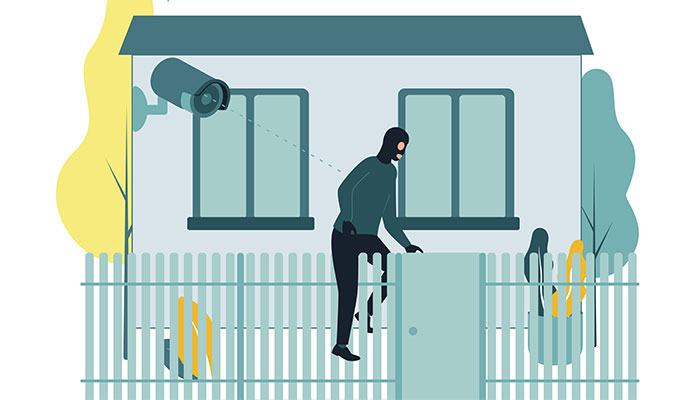
Seniors experience property crime thirteen times more often than violent crime.
Burglary is the most common. (Interestingly, it typically occurs between noon and 4:00 pm!)
The average loss is roughly $3,000, although that does not account for the emotional impact: A profound sense of violation and vulnerability.
October is Crime Prevention Month. There are things you can do!
The yard. Eliminate dark spots with motion-sensor lights at all entryways, walkways, trash enclosures, storage sheds, and garage. Plant prickly plants (e.g., roses, cacti) under windows to make them less inviting. Trim back bushes that might provide a hiding place.
The mailbox. Reduce the number of hours checks are accessible in your box. Arrange for direct deposit (incoming) and paying online (outgoing). Or post checks in a public mailbox.
Personal habits. Lock all doors and windows, even during the day. Draw the blinds at night so burglars don’t get tempting views of your laptop or flatscreen TV, nor intimate knowledge of who lives in your home. Once inside, thieves look for high-value, grab-and-go items, so keep car keys and jewelry out of sight. Make it look like you are home when you are away: Halt newspapers and mail. Install smart switches or timers on indoor lights. Ask a neighbor to park a car in your driveway.
Technology
- Smart door lock. Install a number pad or fingerprint reader. Look for a model that allows you to check and lock the house and garage remotely in case you forgot. (Don’t underestimate the importance of locking the garage. Thieves target them!)
- Smart doorbell. A video camera will deter many a porch thief. If possible, get a version that enables you to converse by voice from your phone. Then you don’t have to go to the door if you are home. And if you aren’t home, no one will know. Consider adding a 24/7 monitoring service.
- Personal safety app. On your smartphone or as a wearable, it makes a loud noise (like a car alarm) to draw attention. And/or it can send a distress message to an emergency contact list or law enforcement.
Neighbors. Neighborhood Watch programs also deter thieves. Talk to local law enforcement about best options for your area.
Safety extends beyond health and wellness. We can help.
Give us a call at 954-446-7022.

